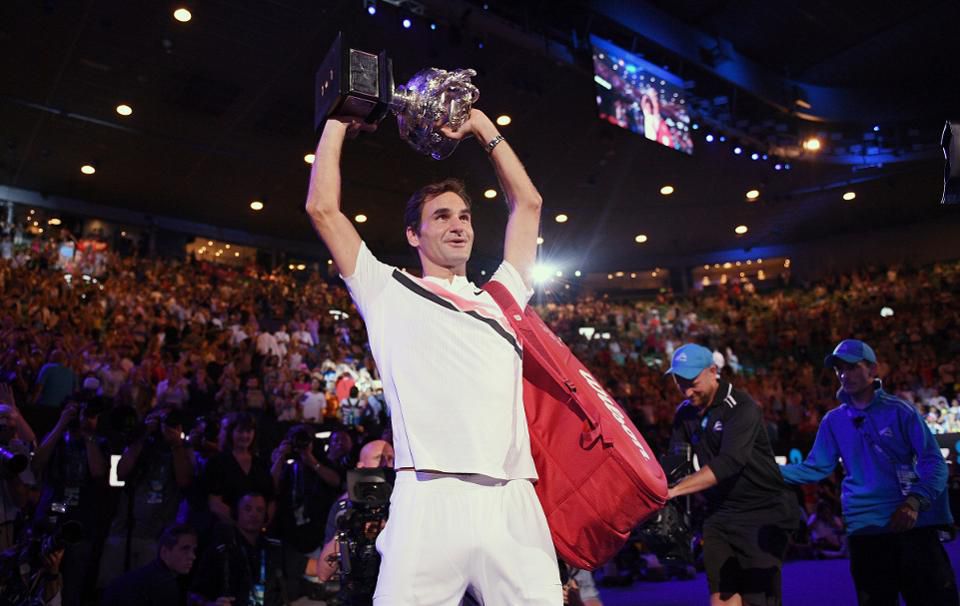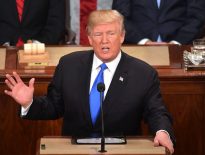When Roger Federer withdrew from two majors in 2016, tennis fans thought the tennis legend’s career was winding down when he decided to take six months off.

Little did Federer or tennis fans know he would go on to win three more open titles in a little over a year, becoming the first man to have 20 grand slam titles. If Federer’s career did taper off in 2016, his legacy would have still been secure- he is the greatest men’s tennis player in history. It’s all the more thrilling because Federer came up with greats like Sampras and Agassi, and now plays the current superstars like Nadal and Djokovic, who will also go down as some of the best to play the sport. Here are six reasons Federer is still winning opens at 36:
Always Think Of Yourself As The Underdog
Federer doesn’t think of himself as the greatest men’s tennis player of all time, he thinks of himself as an older athlete who has to prioritize his health and is just trying to keep up with the young guys in their prime. At a press conference at the beginning of this year’s Australian Open, Federer commented that a 36 year-old has no business being the favorite of a tournament. Statistically, and as the reigning champion of the Australian Open, it makes sense that Federer would be the favorite, but he never lets himself get too comfortable, he refuses to rest on his laurels.
Take Care Of Yourself
He discussed the importance of knowing how to take care of himself in his Wimbledon championship interview last year, and how it is imperative of him to take time to rest between tournaments.He compared his first Wimbledon win with his most recent one, and how quickly he could recover from injuries because he was young, and how now in order to stay healthy he really has to stick to his routine and take more time to relax. Because of his age, Roger knows he needs more time to recover between matches and training sessions than he used to and needs to be less active. Knowing how to take care of yourself is the foundation of longevity, and that’s exactly what he prioritizes.
Learn Something From Every Experience
Federer can famously recall most every match he has played, how he played, and the reason for the outcome. He remembers everything, because he learns something from every match he plays. Off the top of his head he can tell you why he lost in the second round of Wimbledon in 2013, or the quarterfinal of the US Open in 2017. He is a meticulous examiner of his game, and remembers every match so he does not repeat his mistakes.
Discipline, Not Talent Is The Foundation Of Success
When Federer first met his wife, Mirka he had no titles, and was a young (maturity wise) 18 year old. He told the Guardian, She’s always been older than me. And just age wise. The 18 year-old normally didn’t have the patience or discipline for grueling 6 hour training sessions, but his future wife did. Her discipline and work ethic inspired him, and she has seen him win every one of his titles. Her work ethic informed his, and it wasn’t until Federer started properly putting in six hour training sessions and doing the work that he fulfilled his potential.
Constantly Search For Improvement
Even when he plays well, Federer questions what can be improved and how he can improve it. Goalcast made a montage of Federer interviews, in one clip he says, If you don’t do anything or you just do the same thing over and over again, you stay the same, and staying the same is going backwards.
Have Grace And Inner Strength
Federer is the greatest male tennis player ever because of his technical skill, mental toughness and athleticism. He is the most beloved tennis player because of his easy grace, sportsmanship, thoughtfulness, charity work and charm. The evidence is a quick YouTube search away. Having grace and mental toughness are related, and Federer did not always possess them. When he was a young player he threw tantrums and his racket and yelled at the referee, but that is ancient history. Federer has been Federer a long time now, and he has a zen-like presence on the court. He has argued that if he continued his immaturity, talent may have gotten him a few open titles, but he would never have won the career he has. Federer credits his emotional discipline to helping him focus and endure the most challenging moments in matches, after a great deal of work his endurance translated into titles.





